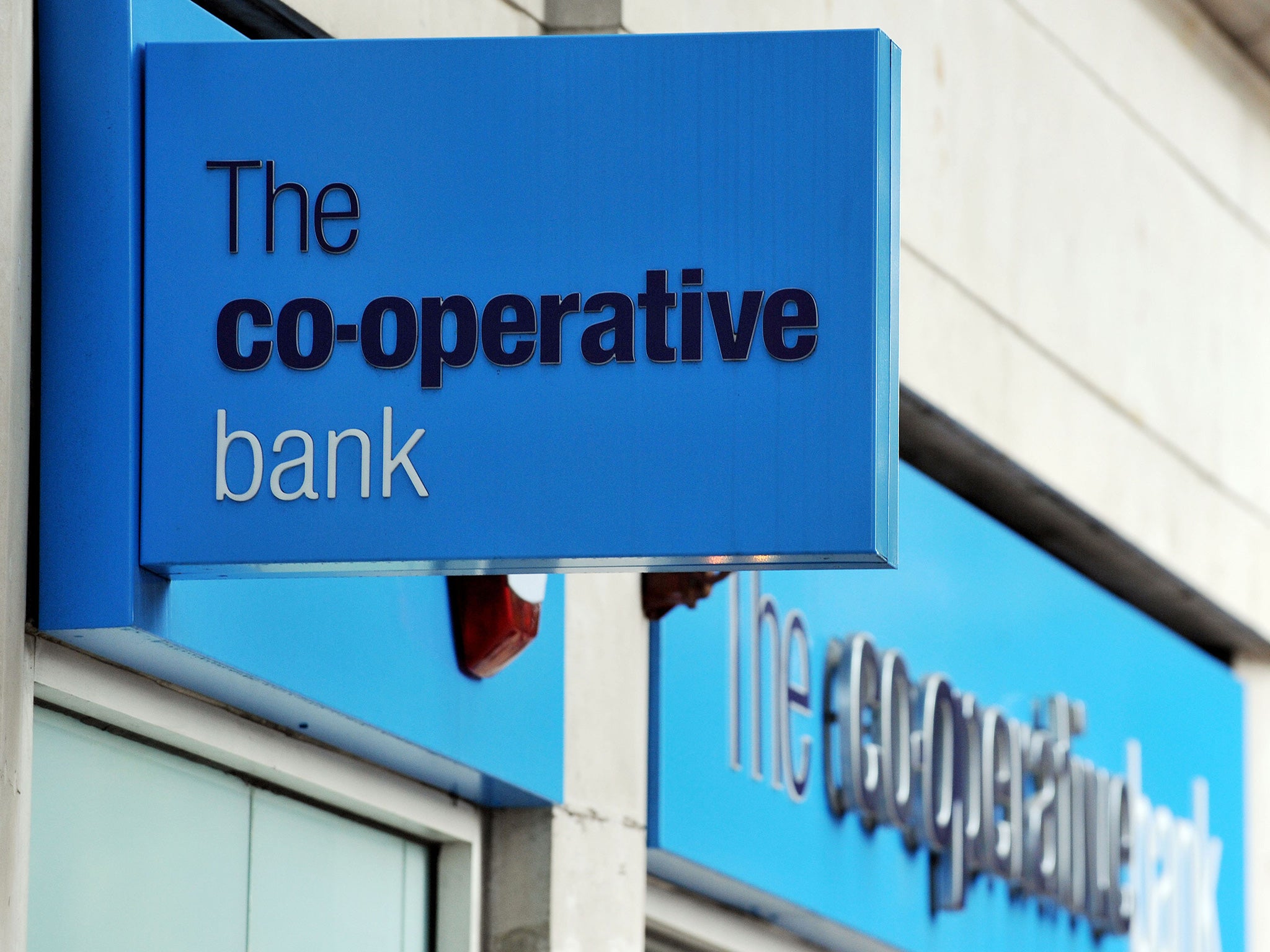The Co-op Bank's back in the black, sort of
The business returned an operating profit in 2018, the first in half a decade. Although it made a loss overall, it's possible to see some green shoots peering through the hard ground

Your support helps us to tell the story
From reproductive rights to climate change to Big Tech, The Independent is on the ground when the story is developing. Whether it's investigating the financials of Elon Musk's pro-Trump PAC or producing our latest documentary, 'The A Word', which shines a light on the American women fighting for reproductive rights, we know how important it is to parse out the facts from the messaging.
At such a critical moment in US history, we need reporters on the ground. Your donation allows us to keep sending journalists to speak to both sides of the story.
The Independent is trusted by Americans across the entire political spectrum. And unlike many other quality news outlets, we choose not to lock Americans out of our reporting and analysis with paywalls. We believe quality journalism should be available to everyone, paid for by those who can afford it.
Your support makes all the difference.Given its travails, the natural reaction of many to a set of results from the Co-operative Bank would be to say ‘what, it’s still here?’
Yes it is. It’s a lot smaller, with just 68 branches, down from over 300, and the Co-operative Group no longer has any shareholding in it. Ownership is mostly in the hands of hedge funds after it almost went under.
But despite it all, the Co-op Bank in still trading, has stuck to its ethical creed and today reported a significant achievement. Last year it made money. Sort of.
The business recorded an operating profit of just under £15m in 2018, compared with a loss of £84m the previous year. That represents the first such profit in half a decade.
But the key word is “operating”. Chuck in everything else - one off costs, investments etc - and the bank still spent the year in the red overall, recording a pre tax loss of just under £141m, similar to the number posted in 2017.
That’s where the challenge comes in.
The bank is likely to remain under water for some time at the headline level. CEO Andrew Bester, the latest in through what has been something of a revolving door at the top, has been notably vague about when that might change, talking only about being back in black at the conclusion of a five year transformation programme.
Faced with operating in an economy beset with uncertainty thanks to Britain’s dismal government, the business is far from out of the woods.
But it is just possible to see some green shoots peeping through the hard ground.
In addition to that all important operating profit, mortgage completions were at their highest level since 2010. The net interest margin - the difference between what borrowers pay and depositors are paid - was above 2 per cent. Business areas the bank had pulled out of are now being looked at again. As application is in for the second tranche of funding RBS has had to put up for small business banks as a consequence of its enormous bailout.
CEO Andrew Bester, a veteran of Lloyds and Standard Chartered, can point to things happening.
The Co-operative Bank is a very different organisation to what he’s been used to. He’s gone from being part of the team running an ocean liner to skippering a sailing dinghy.
The business he runs is small and niche and always will be. But despite all that it has been through, the brand, and its stance, are still attractive to a certain kind of organisation, those for which profit isn’t the prime motivation. It is also still attractive to a certain kind of person. You wouldn’t expect to find Co-op investing in oil sands or other projects that will exacerbate climate change, for example, by contrast to some of Britain’s bigger banks.
Bester needs to pay regard to the standards of service to those customers. If you’re a niche player that’s another means by which you can differentiate yourself and Co-op is not doing that in the way it should at the moment.
But it’s still here, still in business, still making an offer.
If Bester can keep it that way, and pull off a sustainable return to profits, it would represent quite the achievement. It would suggest his former employers might have missed a trick in letting him go. We’ll see.
Join our commenting forum
Join thought-provoking conversations, follow other Independent readers and see their replies
Comments